What is Radiology
The Radiology course deals with diagnosing diseases using various imaging techniques such as X-ray, CT scan, ultrasound, and MRI scanning. Radiology plays an important role in identifying the damages and the malfunctioning of various parts of the body. Injuries that can not be spotted normally by the naked eye are diagnosed with the help of imaging, scanning, and testing.
More than 400 colleges in India offer Radiology courses at different levels. These colleges are available in almost every state of the country. A total of 15 degrees can be obtained in the Radiology branch. These courses can also be pursued in part-time and distance learning modes, but most colleges offer them as full-time courses.
Radiology is a field in the domain of Science that plays a vital role in hospitals. Without radiology, we would be unable to diagnose diseases that are not visible normally. The eligibility criteria for an undergraduate course is 10+2 and for a postgraduate course, the candidates require a Bachelor’s degree in a relevant discipline.
The course curriculum of B.Sc Radiology consists of subjects such as Anatomy, Physiology, and Radiology Graphic Photography. After graduation, students can pursue various job roles such as Radiologist, Radiographer, Ultrasound Technician, and Radiology assistant. The average salary of a Radiologist in India is Rs. 22 LPA, depending on the experience of the student.
Important Dates: Radiology
- NEET SS Round 2 Registration Process- 2nd June 2025 to 8th June 2025
Radiology Course Details- Highlights
| Particulars | Values |
|---|---|
Branch Name | Radiology |
Degree | UG: B.Sc Radiology PG: M.Sc Radiology |
Duration | UG: 3 years PG: 2 years |
Eligibility | UG: 10+2 in any field PG: Bachelor’s degree in the same field |
Admission Process | Admission Examination/ Direct Admission |
Entrance Exam | UG: NEET UG, CUET Exam PG: NEET PG, NEET SS, INI CET, NEET MDS |
Course Fees | Rs. 5, 730 to Rs. 59.40 Lakhs |
Job Profiles | Radiographer, Ultrasound technician, Radiology Nurse, Registered Nurse, Radiology Assistant, Neuroradiologist, and Pediatric Radiologist |
Average Salary | Rs. 22 LPA |
Recruiting Companies | Government hospitals, Diagnostic Centres, Private hospitals, and Nursing homes |
Specialisation or Similar Ones
Radiology is a medical speciality that uses imaging techniques to diagnose and treat diseases. There are several specialisations and related fields within radiology that professionals can pursue. In the table below, we have listed the specialisations or similar fields.
Neuroradiology | Breast Imaging |
Cardiovascular Radiology | Ultrasound (Sonography) |
Computed Tomography (CT) Technology | Tele-Radiology |
Top Colleges in India Offering Radiology
Many colleges in India offer Radiology degree programmes. The admission process is based on an entrance examination or merit score. Students are advised to carefully check all the course details and eligibility criteria before applying for admission. In the table below, we have mentioned the top Radiology colleges in India:
| Colleges | Fees |
|---|---|
- | |
- | |
- | |
Rs. 59.40 Lakhs | |
- | |
Rs. 5 Lakhs | |
Sri Ramachandra Institute of Higher Education and Research, Chennai | - |
- | |
Rs. 69.75 Lakhs |
Note: The fee structure provided above can be for any particular Radiology course (Diploma/ Degree/PGD).
Top Private Radiology Colleges in India with Fees
There are various private colleges in India offering Radiology courses at both undergraduate and postgraduate levels. Studying at a private college is comparatively more expensive than studying the same at a public institute. In the table below, we have listed the top private colleges in India offering Radiology courses in India.
| Colleges | Fees |
|---|---|
Rs. 3.33 Lakhs | |
Rs. 80,500 | |
Rs. 120.40 Lakhs | |
- | |
- | |
Rs. 6.45 Lakhs | |
Rs. 1 Lakh | |
- | |
Rs. 36 Lakhs |
Top Government Radiology Colleges in India with Fees
Studying Radiology at a government institute is a great choice because it is more affordable than a private institute and also offers quality education. In the table below, we have mentioned the top government colleges in India offering Radiology courses at undergraduate and postgraduate levels.
| Colleges | Fees |
|---|---|
- | |
- | |
- | |
- | |
- | |
- | |
Rs. 36,000 | |
Rs. 3.42 Lakhs | |
- | |
Rs. 10,500 | |
Rs. 1.69 Lakhs |
Eligibility Criteria (UG & PG) of Radiology
Eligibility Criteria for Radiology courses at the undergraduate level is more or less the same for every institute. Students must appear for relevant entrance exams such as NEET UG and score a valid percentage as per the cutoff to be eligible for admissions. Listed below are the important Radiology eligibility requirements for the undergraduate course.
- Students must clear 10+2 from a recognised board of India in the Science stream, with Biology, Chemistry, and Physics being compulsory subjects.
- The student should score at least 50 per cent in the 12th standard for getting admission to top colleges.
- Candidates should appear for an entrance test conducted by the universities and exam authorities, the most popular entrance exam is NEET UG.
Top Entrance Exams for UG Courses
The entrance exam decides the admissions to the respective college and course. So, it is important to clear the cutoff of the entrance exam for gaining admission. Below, we have compiled entrance exams for radiology UG courses.
| Exam Name | Exam Level | Conducting Body | Exam Schedule |
|---|---|---|---|
National | National Testing Agency (NTA) | ||
National | National Testing Agency (NTA) |
Eligibility Criteria for PG Courses
Radiology courses are also offered at postgraduate levels, admissions are based on entrance examinations. Generally, for a postgraduate degree in Radiology, students need a bachelor's degree in a relevant discipline. Listed below is the eligibility details of postgraduate degrees in Radiology.
- Candidates should have a bachelor's degree in Radiology or a similar discipline from a recognised university in India.
- They also need to have obtained a minimum of 50 per cent in a bachelor's degree with a background in science.
- Students also need to appear for relevant entrance examinations for admission to the PG-level degree programmes.
Top Entrance Exams for PG Courses
Entrance examinations play an important role in the admission process of Radiology. The exams can be conducted at the university, state, or national level. In the table below, we have mentioned the popular entrance examinations along with their important details.
| Exam Name | Exam Level | Conducting Body | Exam Schedule |
|---|---|---|---|
National | NBE | ||
National | NBE | - | |
National | AIIMS New Delhi | ||
National | NBE |
College Predictors VIEW ALL
Scope of Radiology in India and Abroad
The scope for radiology courses is vast both in India and Abroad. Radiology plays an important role in medical science for treating patients using imaging techniques. It helps to diagnose various diseases and injuries that are not visible to the naked eye. These scanned pictures help doctors come out with effective methods to treat patients.
In India, Radiology is well established, almost all hospitals have a radiology department and these radiology graduates are hired at super speciality centres with high-end machines. Outside India also, the radiology field has a wider scope. Besides working in hospitals and clinics, a lot of radiologists spend time doing research. Research helps radiology graduates to grow immensely.
Course Fees Radiology
| Minimum Fees | Maximum Fees | |||
|---|---|---|---|---|
| Private | Government | Private | Government | |
| UG | ||||
| PG | ||||
| DOCTORAL | ||||
| DIPLOMA | ||||
Course Subjects
The course curriculum includes both theoretical and practical subjects related to imaging and scanning techniques. The syllabus also includes a thesis or a dissertation on a research topic. Mentioned below is the Radiology syllabus for undergraduate and postgraduate degrees.
Radiology Syllabus for UG Courses
The undergraduate degree in Radiology mainly focuses on the fundamentals of Radiology such as Human Anatomy, physiology, and imaging techniques. Students can learn the basics of ultrasound while pursuing a Radiography course. The syllabus of the B.Sc Radiology course is taken from TNMGRMU Chennai.
Year 1 | |
Human Anatomy, Physiology & Pathology relevant to Radiology. | English |
General Physics, Radiation Physics & Physics of Diagnostic Radiology | Basics of Computer |
Radiography Equipment | Maintenance and Quality Control related to X-ray only. |
Year 2 | |
Clinical Radiography. | Patient Ethics and Care |
X-Ray Film / Image Processing Techniques, including Dark Room Techniques. | Principles of Medical Emergencies |
Contrast procedures | Project |
Year 3 | |
Equipment of Advanced Imaging Modalities | Log Book and Audit |
Modern Imaging Techniques and Recent Trends in Imaging | Safety in Radio diagnosis / Imaging other than X-ray related. |
Quality Control | Radiobiology & Radiation |
Radiology Syllabus for PG Courses
Students pursuing master-level radiography courses in radiology will cover the advanced topics. They learn various technical skills at the postgraduate level such as the usage of medical equipment. Mentioned below is the syllabus of the MGM School of Biomedical Sciences.
Semester- 1 | |
Conventional Radiology and Imaging Equipment | Modern Radiological and Imaging Equipment |
Radiation Safety and Protection | MRIT Directed Clinical Education |
Conventional Radiology and Imaging Equipment (Practical) | Modern Radiological and Imaging Equipment (Practical) |
Semester- 2 | |
Radiography and Imaging Techniques | Interventional Radiological Techniques |
Radiological Physics for Imaging | MRIT Directed Clinical Education- II |
Research Methodology and Biostatistics | Radiography and Imaging Techniques (Practical) |
Radiological Physics for Imaging (Practical) | Research Methodology and Biostatistics (Practical) |
Basics of Clinical Skill Learning | Hospital Operations Management |
Semester- 3 | |
Radiological and Imaging Procedures | Quality Assurance in Diagnostic Imaging |
Seminar | - |
Semester- 4 | |
Pursuit of Inner Self Excellence | Bioethics, Biosafety, IPR and Technology Transfer |
Disaster Management and Mitigation Resources | Human Rights |
Dissertation/ Project | Educational Tour/ Hospital Visit/ Field Work |
Careers in Radiology
Radiology graduates have a promising career in the medical field. They can work as radiologists, technologists, radiographers, medical assistants, imaging specialists, and physicians. The work setting of a Radiologist includes clinics, health care centres, hospitals, and NGOs. Candidates can also opt for a PhD if they are interested in getting into academics or research.
X-ray Technicians: X-ray technicians are professionals who operate various X-ray equipment. They are also responsible for conducting X-ray tests for patients to help identify the problem.
Radiographers: Radiographers are professionals who use X-rays and other such methods to diagnose and treat patients. They are responsible for treating the patients with the help of different radiation methods.
Radiation Protection Specialists: Radiation Protection specialists are professionals who protect humans from the dangerous effects of radiation. They are also responsible for finding ways to minimise and prevent radiation damage.
Scientific Assistants: Scientific Assistants are professionals who perform research to identify new methods for treating patients using radiation. They conduct research and studies on various aspects of the fields related to radiology.
Radiologists: Radiologists are medical professionals who are involved in treating and diagnosing patients through medical imaging. They read and interpret the diagnostic test and make a diagnosis.
Upcoming trends
Radiology is a growing field in medical and healthcare and there are many upcoming trends in this field. Some studies are devoted to finding ways by which we can reduce radiation damage. New machines are being developed to diagnose internal damages and injuries. Some of the upcoming trends are listed below.
- Radiology AI Adoption
- Web-Based Enterprise Imaging System
- Cloud-based Archive Storage
- Photon-Counting CT
- 3D Mammography
Job Profiles and Top Recruiters
After graduation, students can work as X-ray technicians, Radiographers, Radiologists, and Radiation Protection Specialists. Students can find employment at hospitals, clinics, diagnostic centres, and research centres. Many companies are on the lookout for deserving and qualified professionals to join their radiological departments. Some of the top recruiters are mentioned below.
Top Recruiters:
- AIIMS
- Apollo Hospital
- CMC
- Medanta
- Fortis Hospital
- Manipal Hospital
Average Salary
The salary of a graduate is influenced by many factors. Job location, experience, and job profile of the candidate are important factors. Candidates should choose their career based on their future goals and aspirations. In the table below, we have listed the popular job profiles and the average salary of the graduate.
| Job Profiles | Average Salary |
|---|---|
X-Ray Technicians | Rs. 2.5 LPA |
Radiographer | Rs. 2.9 LPA |
Radiologists | Rs. 24.4 LPA |
Therapy Radiographer | Rs. 3.9 LPA |
Scientific Assistant | Rs. 8.1 LPA |
Source: Ambition Box
The salary figures mentioned anywhere in these articles are just for reference purposes. Please treat them as such. Actual salaries may vary depending on the respective candidates, employer, job location, and numerous other factors.
Required Skillset for Radiology
To become successful radiographers candidates must possess certain skills which help them in enhancing their knowledge in the chosen field. A candidate with the right skills can be hired in multispeciality hospitals and other medical agencies. Students must also have technical skills that play an important role in their future career options.
- Management Skills
- Interpersonal Skills
- Analytical Skills
- Problem-Solving
- Critical Thinking
- Interest and Aptitude for Medicine
Course Curriculum for Radiology
The Radiology course curriculum is designed in a way that would cover both the core and elective subjects. The course curriculum of undergraduate courses includes all the basic topics related to radiology courses. These basic subjects help the students to understand the history of radiology, the applications of radiology, and the importance of radiology.
Students pursuing master studies in radiology will learn imaging techniques and the usage of medical equipment. The radiology course curriculum at the PG level will also include practical topics in radiology. The candidates are awarded various degrees after completing PG courses such as M.Sc in Radiology.
Popular Radiology Entrance Exams in India
Frequently Asked Questions (FAQs)
Question: What is the average course fee for Radiology?
Answer :
The average course fees for Radiology depend on the type of institute, the location of the institute, and the level of education. Generally, the course fees of a Radiology course range from Rs. 5, 730 to Rs. 59.40 Lakhs, depending on the institute.
Question: What are some popular career options in the field of Radiology?
Answer :
There are many career opportunities for the student of Radiology after completing the course, students can work in various industries. Some of the popular career options are Radiographer, Ultrasound technician, Radiology Nurse, Registered Nurse, Radiology Assistant, Neuroradiologist, and Pediatric Radiologist.
Question: What are the eligibility criteria for a Radiology course?
Answer :
Candidates interested in pursuing a Radiology course at the undergraduate level must complete their 10+2 grade with a valid cut-off score of 50 per cent or as specified by the desired institute. For a postgraduate course, candidates must complete their Bachelor's degree such as B.Sc in disciplines related or similar to Radiology with a minimum aggregate score stated by the desired institute.
Question: What are the top entrance examinations required in the field of Radiology?
Answer :
The requirement of the entrance examination for a Radiology course depends on the institute, some institutes also offer direct admission based on the merit score. For an undergraduate degree programme in the field of Radiology, candidates need to appear for NEET UG or any other exam specified by the institute, similarly for a postgraduate course, candidates must successfully clear the NEET PG exam with a valid cut-off score.
Question: What is the Radiology course salary?
Answer :
The average salary for a Radiology course varies depending on various factors such as the location of the company, the individual's skills and experiences, and the job profiles applied by the candidate. The average salary of a Radiographer is Rs. 2.6 LPA.
Questions related to Radiology
how to join a BSC radiology in indian army whats the qualification and eligibility
Hello,
First, you have to complete B.Sc Radiology or a Diploma in Radiology to get into the Indian Army. After you get your degree, you can apply for the post of Radiographer or X-ray Technician in the Army Medical Corps or AFMS. The age limit is 18-27 years. For that, you have to take PCB in class 12th.
Hope it helps!!!
What is the procedure required to take addmission in mahatma gandhi university for bsc in radiology
Hey,
For admission in Mahatma Gandhi University for B.Sc. in radiology, first you must come under the eligibility criteria, like you should pass class 12th with the subjects Physics, Chemistry and Biology with minimum 50% marks to qualify the exam.
Then fill out the form which you can find in the official website of the college. Submit the documents required like marksheets, photo, ID proof and category certificate if needed.
After that either you will be selected on the basis of the merit list or the entrance exam and interview conducted by the university. After that, you need to pay for the fees and complete document verification.
Hope it helps!!!
BSc radiology and imaging Technology
Hello,
BSc Radiology and Imaging Technology is a 3–4 year undergraduate course. It teaches medical imaging techniques like X-ray, CT, MRI, and ultrasound to help diagnose diseases.
Eligibility:
10+2 with Physics, Chemistry, Biology.
Career:
Radiographer, MRI/CT/Ultrasound technician, diagnostic lab jobs.
Skills:
Science knowledge, attention to detail, patient care.
Hope it helps !
will i get with 19958 rank bcb category girl in radiology
Hello,
Based on previous year trends, a BCB category girl with a rank of around 19,958 has very low chances of getting a seat in Radiology .
Radiology is one of the most preferred branches and its cut-off ranks usually close much earlier. For example, in previous years, Radiology seats for BCB or equivalent OBC categories have closed below 5,000–10,000 ranks in most counselling rounds.
So, with a 19,958 rank, it is unlikely to get Radiology , even under the BCB category. You may get a chance in less competitive specialisations depending on the state and college.
Hope it helps !
AIIMS bhubaneswar bsc medical technology in radiology course fee or total fees
Hello dear candidate,
here is the link to the details regarding fees as well as others details of AIIMS Bhubaneswar :-
https://dqxeclau.top/university/all-india-institute-of-medical-sciences-bhubaneswar
I hope you find this helpful.
Thank you.




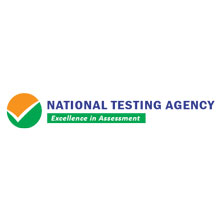


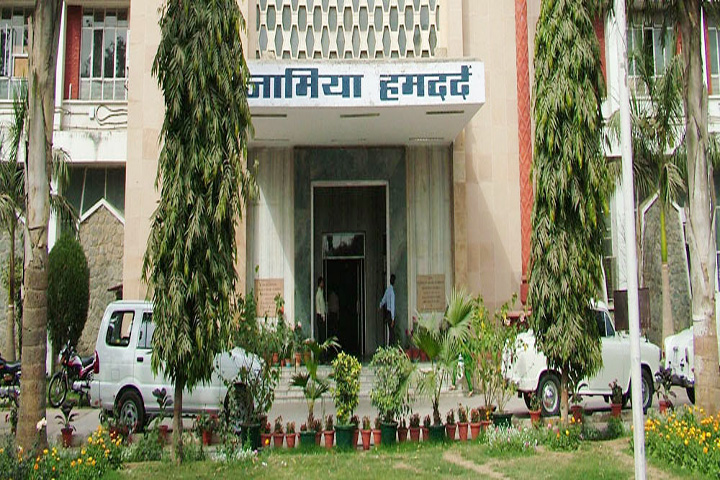
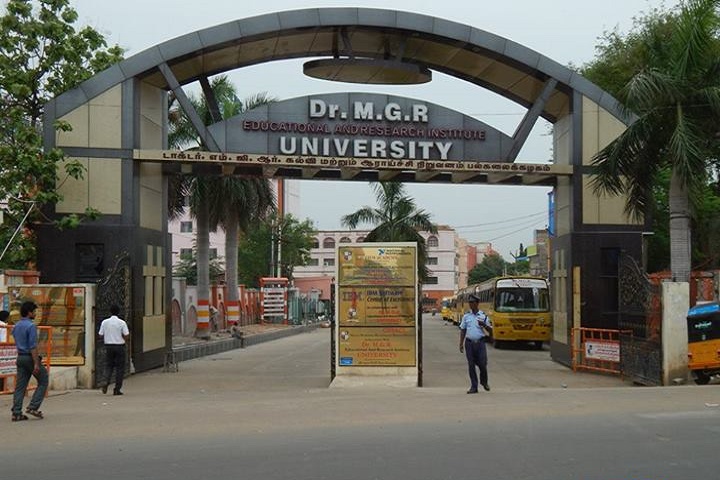
.jpg)
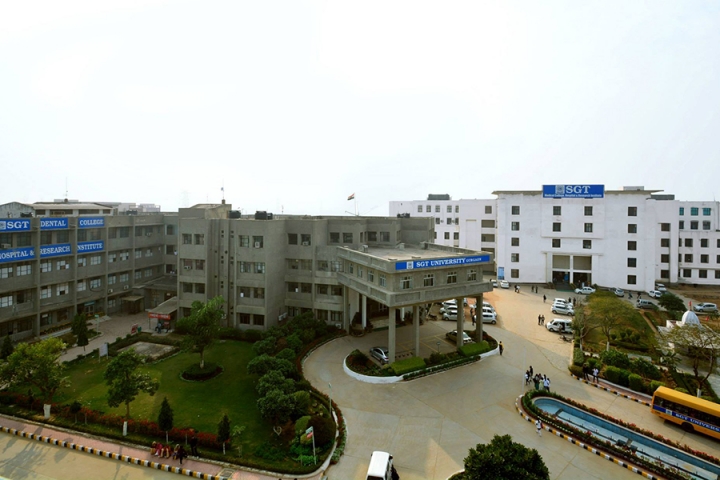
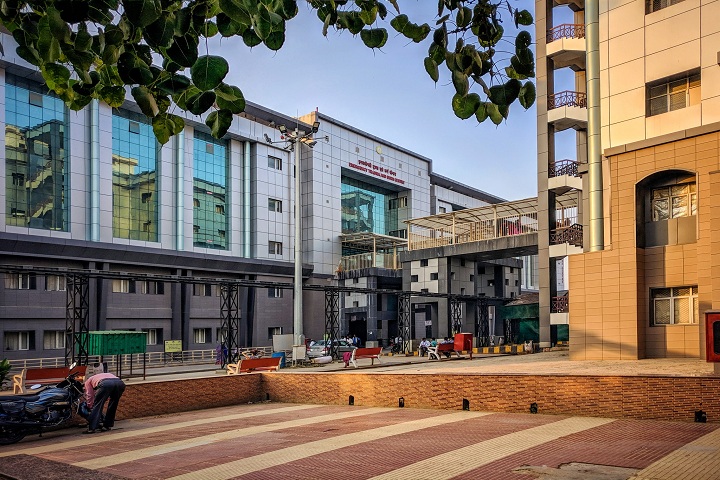
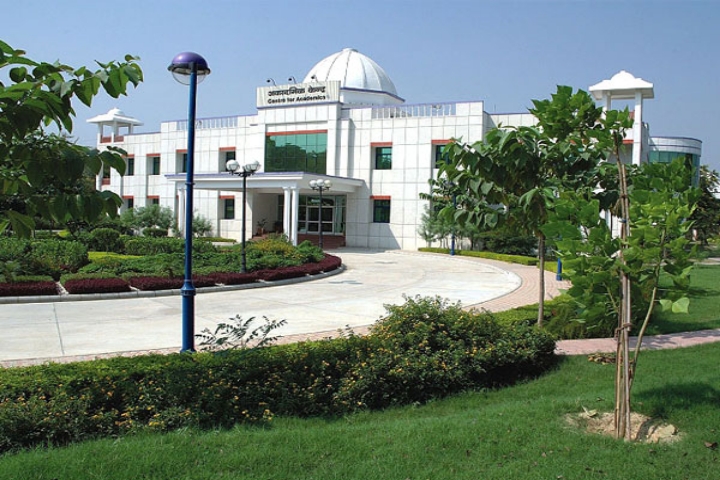

 Answer later
Answer later

















